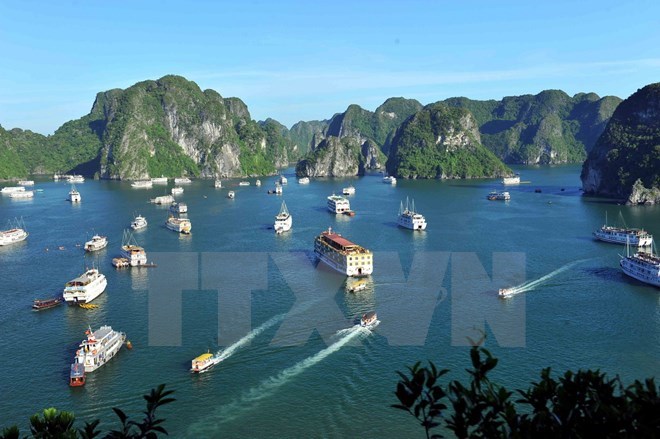Sustainable tourism development in the world natural heritage sites was the focus of discussion at a talk with the media in Hanoi on March 12.

The event formed part of activities in the framework of the Ha Long Bay – Cat Ba Alliance (HLCBA) Initiative, launched by the International Union for Conservation of Nature (IUCN).
Addressing the event, IUCN Acting Country Director in Vietnam Jake Brunner said tourism development has helped preserve and promote the cultural heritage values and natural resources, thus contributing significantly to the nation’s economic development.
However, the overdevelopment of tourism in several coastal provinces results in numerous negative impacts, particularly in the nearby and buffer zones of nature reserves and world heritage sites, he added.
In the context, the event presented an opportunity for journalists to talk with managers, experts, and international organisations about impacts of tourism development on the environment and the ecosystem in the Ha Long – Cat Ba site in particular, as well as seek measures for sustainable tourism development in the area.
During the event, journalists discussed in groups on issues related to tourism development in Vietnam’s heritage sites, covering planning on infrastructure and services; treatment of wastewater of cruise ships; and preserving species and biodiversity.
Experts and representatives from international organisations highlighted the initiatives and experience in sustainable tourism of Vietnam and other nations.
They also proposed solutions to sustainable tourism development in the natural heritage sites, with focus on developing vision and action plans for the 1972 Convention concerning the Protection of the World Cultural and Natural Heritage, thus enhancing the public awareness of the environment situation and improving the water quality in Ha Long Bay and Cat Ba archipelago.
The Politburo's Resolution No. 08-NQ/TW dated January 16, 2017 defined tourism as a spearhead economic sector, targeting 17-20 million international visitors and 80 domestic ones by 2020.
In 2016, Vietnam welcomed 10 million foreign tourists and served 62 million domestic holidaymakers.-VNA